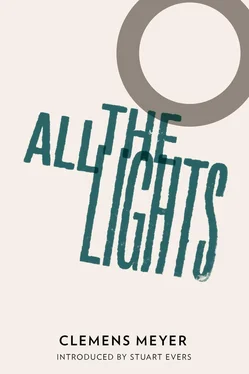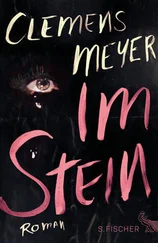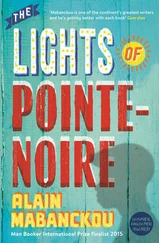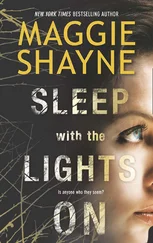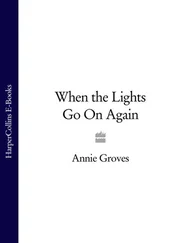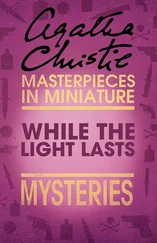‘No,’ he said with a tap at her fingers, ‘the five for the third time, twenty-five times five. It’s like,’ he thought for a moment, ‘when you skim a stone, skim a flat stone across water, Juli, and it bounces off four times before it goes under. You can skim stones, can’t you, Juli?’
‘On the water,’ she said. He stood with her by the water, the lake outside town, the motorway beyond the embankment; they heard the hum of all the cars. She stood in front of him in her brightly coloured dress, the one she’d be wearing on her birthday, skimming flat stones across the water. ‘Seventy-five,’ she said, ‘seventy-five times five.’ He was wearing a loose Hawaiian shirt, watching her skim the stones across the water, and he was happy.
He walked slowly down the hallway, the white bathroom door ahead of him. He ran a hand over his face. He hadn’t shaved for a few days. Back then he’d shaved every morning and moisturised his face and gone to school with a smooth, shiny face. He’d usually started to sweat on the bus. Then he’d sat sweating in the staff room, his sandwiches and coffee on the table in front of him.
They talked about him behind his back; he knew that. Mrs Koch and Mrs Bräuninger put their heads together, Mrs Bräuninger with her silver whistle on a string round her neck all the time; he’d often stood by the window and looked out at the sports field, looking for Juli and hearing Mrs Bräuninger’s whistle. Juli was very good at sports, always a front-runner in races, and she won almost every sprint. She was wearing a pale blue tracksuit. She ran across the playing field to the other girls. She was laughing — he could see that from up here. He even thought he could see her teeth. He leaned against the windowsill and listened to the class behind him writing, the rustle of paper, the scratching of pens, now and then soft whispers. She didn’t have maths on Wednesdays, but when he taught 7b at noon he could look down at the playing field, if the weather was good. In the winter and when it rained she was in the gym with the others. Sometimes the girls and Mrs Bräuninger didn’t come out even though the weather was good; they played volleyball in the gym or did gymnastics and did all the things he’d never been able to do and had always hated as a child. He’d been bad at sports, fat and heavy-breathing, and when he thought about how they’d laughed at him when he clung onto the climbing bar and didn’t move an inch upwards, he wished he could clear the memories from his brain like old results on a calculator — ‘Fatty, fatty’ — he thought about numbers, about fractions, quadratic equations, matrix equations. He looked down at the playing field and looked for her in the group of girls, two or three pale blue tracksuits — there she was; he recognised her brown hair, which she tied up in a short ponytail. Eleven years, exactly a quarter of his life. Eleven years ago he’d been at a different school, in a different town. The German and Music teacher — a small, delicate woman. He thought about interior and exterior angles, about the first thirty-five digits of pi, about straight lines that would meet somewhere in infinity, but at night he dreamed of Miss Kerner, German and Music, and woke up sweating, and imagined inviting her to dinner, imagined himself calculating food and drinks, aperitifs and desserts and champagne in his head quick as a flash, then they’d sit on the sofa in his living room, close together, he’d explain the infinity of numbers and Miss Kerner would recite a poem.
Thirty-three, eleven, forty-four years. A series that almost fit together. He leaned against the windowsill and saw Juli among all the other girls, lining up in several queues, raising their arms and moving their torsos, Mrs Bräuninger in front of them, the silver whistle in her mouth. He had invited Miss Kerner to dinner back then, but she’d just smiled and said, ‘How nice, thank you,’ and told him she couldn’t come. Somehow, even the pupils had got wind of his rejected invitation, odd nasty remarks now and then, ‘K and K, Kerner and Krein,’ his colleagues smiled about him and in his mind he drew huge circles, with a giant set of compasses, huge intersecting circles, and he had to calculate the area of the cross section. And now they were whispering behind his back again after so many years, a different school, a different town, gossiping in the staff room, ‘Fatty and Juliana, something’s not right there,’ and he saw her down there on the playing field, and when she raised her hands above her head she seemed to be waving at him.
He stood in his living room, not knowing how long he’d been standing there, not quite knowing what day it was, not quite knowing what time it was, still seeing Juli, her light blue tracksuit getting paler and paler, and he shook his head. He looked over to the window; it was still light outside. It was summer and the days were still long. Then he remembered the cutlet in aspic that had splatted onto the kitchen floor, and suddenly he knew there were exactly eight days to go until her twenty-first birthday. And then he knew why he was standing in the living room in front of his cabinet. He took a couple of steps towards it, turned the key and opened the small glass door. The class photograph and the dog made out of conkers. Ever since he’d stopped taking the bus to school, he’d often stood in front of the cabinet in the morning — he still woke up at the same time — and looked at the dog and the photo through the glass, not opening the little door. She was in the last row at the back. She was smiling. He picked up the photo, for the first time in years; he had to squint and hold it right up to his face — he must need glasses. She was smiling. He was standing to one side. His bald head was shining and he was red in the face. ‘My dear Mr Krein,’ the headmaster said, ‘my dear Mr Krein, you’ve been teaching your syllabus very well for years, you’ve been popular for years with your colleagues and pupils,’ the headmaster hesitated, probably aware that wasn’t quite true. ‘My dear Mr Krein,’ he started in again, and Mr Krein interrupted him — even years later he was amazed at his courage, but actually it hadn’t been courage, it was sadness, the onset of sadness, for he knew what was coming. ‘Please stop all this “My dear Mr Krein” business,’ said Mr Krein. ‘Just get to the point and stop it, will you just stop it …’ Then he almost shouted, ‘Get to the point, will you, for God’s sake!’
The headmaster flinched, leaning forward so their heads were almost touching. ‘It’s about the thing with the girl, Juliana. Her parents came to see me. Do you know what you’re getting yourself into?’
‘I’m not getting myself into anything,’ said Mr Krein softly. ‘I’m not getting into anything at all.’
He put the photo back in the cabinet and reached for the conker dog. As he stretched out his arm the pain came back, but he took no notice. He held onto the dog with both hands, took a few steps back and dropped down onto the sofa. Four times they had sat here. The textbooks and her exercise book in front of them on the table. A large bottle of juice and a bar of chocolate. She took the dog made out of conkers out of her satchel and put it on the table between the books and the juice and the chocolate. ‘I made this for you,’ she said. A little animal made of conkers and matchsticks. He hadn’t realised right away that it was supposed to be a dog; it could have been a sheep or a cat, but then she’d said, ‘It’s a dachshund, Mr Krein, for you.’
‘Thank you, Juli,’ he said. ‘I’ve always wanted a dachshund.’
She smiled, and he took the conker dachshund, balanced it on his belly and cautiously stroked the large conker that was its head. ‘My parents,’ said Juli, and he said, ‘Yes?’ but he wasn’t listening, he was stroking the dachshund moving up and down on his belly as he breathed. She talked, and he closed his eyes and saw three circles, two large and one small between the two large ones. The two large circles touched in the middle of the small circle, then they moved apart again, and it looked like they were holding the small circle tight in the middle. ‘I’m going now,’ she said. She stood in front of him, pressing her exercise book to her chest and her chin. ‘Bye, Mr Krein.’ The dog fell off his stomach as he reached a hand out for her. ‘Stay a bit longer, Juli, I’ll take you home.’
Читать дальше
